Course-Based Undergraduate Research Experiences (CUREs)
Course-Based Undergraduate Research Experiences (CUREs) provide undergraduate students with valuable, authentic hands-on research opportunities. At the Danforth Center, CUREs immerse students in foundational scientific research, enhancing academic achievement, shaping future career aspirations, and fostering interest in STEM fields. Through these experiences, students engage in authentic scientific practices, formulate research questions, and process data to generate new knowledge within collaborative teams.
Genotype to Phenotype
Research Question: How does the architecture of corn affect yield?
In this program, college students can grow their own corn seedlings, learn ways to measure leaf angles, and contribute real data to the laboratory of Danforth Center Principal Investigator Andrea Eveland, Ph.D. Through this experience, teachers and students are trained in concepts of genetics as they relate to agriculture, food security, and data science.
Through Genotype to Phenotype, students will grow corn seedlings of hundreds of corn genotypes and measure the leaf angles manually and through image analysis. In a second exercise, students test for the presence of specific changes in the DNA of the corn plants in order to understand the correlation between these genotypic changes and the variation in the phenotypes (physical characteristics) of the plants. By screening hundreds of corn genotypes, students contribute molecular and phenotypic data that can help the Eveland lab develop predictive models to determine the leaf angle of an adult plant based on the seedling data.
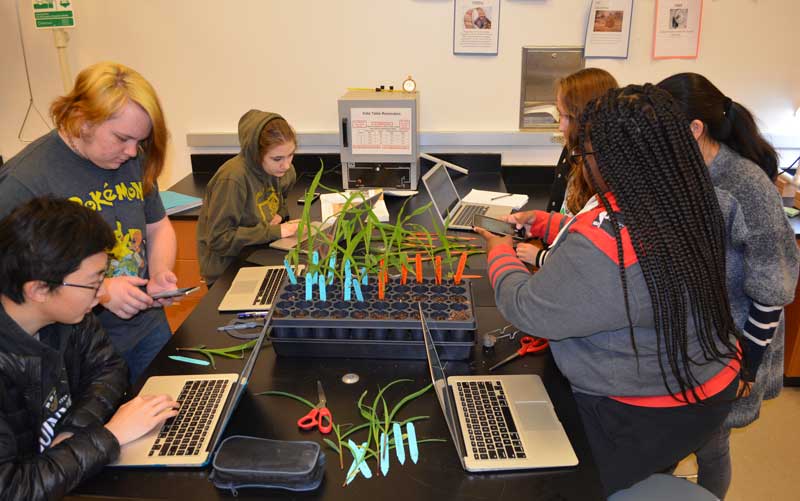
Mutant Millets
Research Question: What phenotypes benefit the growth and quality of Millets?
Our Mutant Millets program brings real science research into classrooms and allows students to begin engaging in the scientific process. In Mutant Millets, we focus on a plant called Setaria viridis, or green foxtail millet. While Setaria is often considered a weed, it is extremely valuable to scientific research. Not only is it related to economically important plants like corn and sugarcane, but scientists have also sequenced its entire genome, making it useful for comparative genomics with cereal crops. Through Mutant Millets, students can help our researchers identify mutant traits in Setaria plants, and contribute to our scientific research.
Mutant Millets equips teachers with professional development training, supplies, and laboratory-generated mutant seed populations of Setaria viridis for their students to grow in their classrooms to familiarize them with skills in scientific research. As data is collected, students will also input their findings that will be utilized by scientists at the Center.
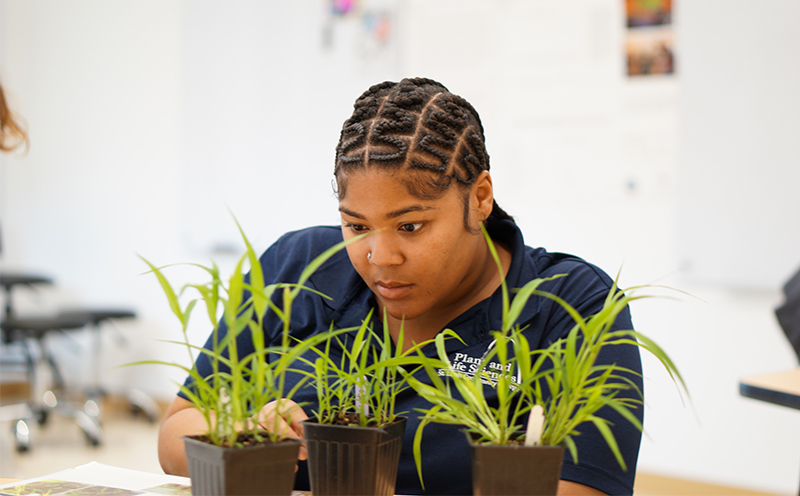
Discovering Volvox Development
Research Question: What genes contribute to the understanding of the evolution of multicellularity using Volvox?
In our Discovering Volvox Development (DVD) program, middle and high school students can contribute to real scientific research happening at the Danforth Center. Through DVD, students will screen for developmental mutants in the green algae Volvox carteri. Volvox is a visually-engaging organism that students use for learning important lessons on the concept of organismal life cycles. Volvox is an experimentally tractable multicellular species with recently evolved germ and somatic cell types, which is under investigation in the laboratory of Danforth Center Principal Investigator Jim Umen to understand the origins of multicellularity.
The highly-visual nature of Volvox makes scientific research exciting for students. It is also easily cultured and screened for mutants, making DVD a great opportunity for students to engage in an authentic research experience. Students document their contributions by uploading their data to the ARE Portal that will also provide updates on how with Volvox discoveries are being utilized in the laboratory. This program offers professional development to educators and supplies and support for classroom settings and for independent projects conducted at home by students.
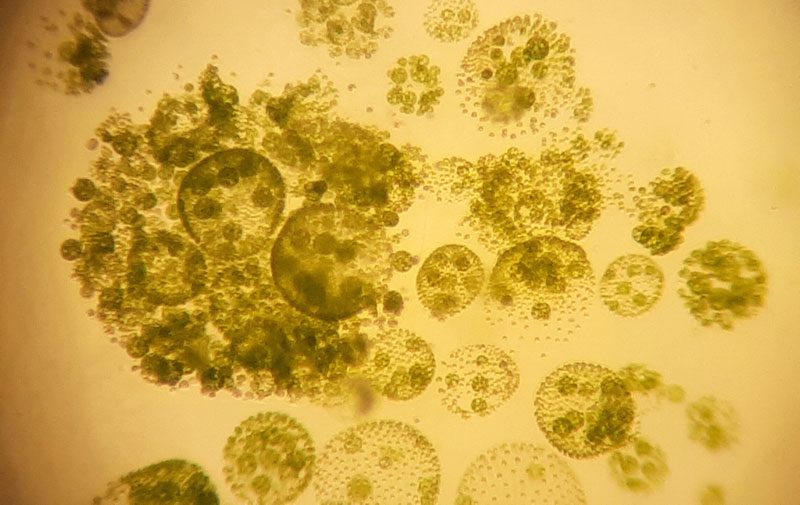
Plants Fight Back
Research Question: Can a peptide from legumes protect other plants as a fungicide from infection?
Fungal diseases such as wheat head scab, wheat rusts, rice blast and sheath blight, soybean rust, banana black sigatoka are a major threat to food security and food safety. Some fungal pathogens produce mycotoxins that pose a major threat to human and animal health. Fungal diseases cause 12-15% yield loss in crops. The fungicide market will be a 17 billion industry by 2022. Fungal resistance to fungicides and environmental damage are major global challenges. In this authentic research experience, students will learn about the ways in which plants fight off fungal pathogens and how this is important to global food production. Students will have the opportunity to observe the effect of antifungal peptides such as defensins and understand how these peptides work to fight off fungal pathogens without the use of synthetic fungicides.
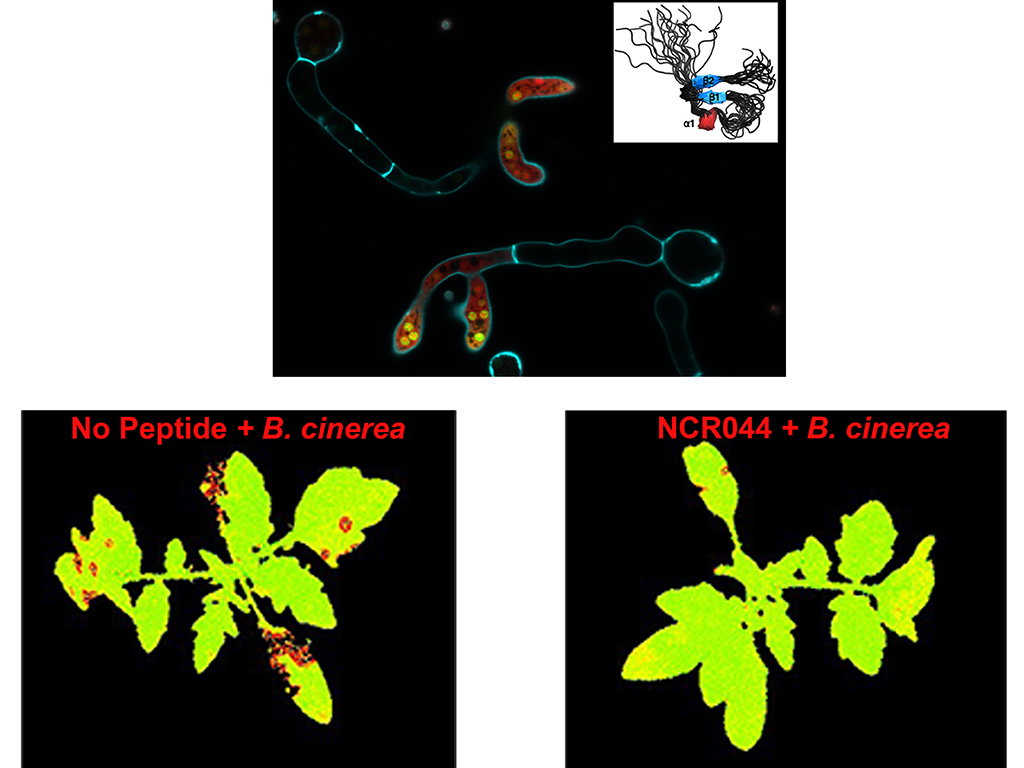
Data Science
This project will enhance scientific research skills of underrepresented racialized minority students through exposure to authentic STEM research, cutting-edge skills in image analysis, and data science techniques using image datasets from current scientific research studies in a course-based undergraduate research experience (CURE). Project partners are the Donald Danforth Plant Science Center (DDPSC), a non-academic, non-profit plant science research facility, and Harris-Stowe State University (HSSU), a local historically black college and university (HBCU). The project goal is to provide a change model for access to STEM research experiences (CUREs) for classrooms of racialized minority undergraduate students. Project objectives are focused on assessing HSSU students’ experiences and outcomes including gains in data science skills, attitudes toward STEM careers, self-efficacy and perception of research relevance, when engaged in a CURE focused on plant phenotyping and big data.
DDPSC has a rich digital data resource of over 8 million images and growing from current scientific research studies on crops and model plants that will engage entire classrooms of undergraduate students in authentic data analysis research experiences to build their data science competence and scientific research skills plus provide meaningful contributions to the research projects. HBCUs like HSSU are known for their wealth of social cultural capital, a critical support resource to students’ academic experiences. DDPSC scientists and education researchers will collaborate with HSSU faculty to design and implement a CURE that engages students in basic computer programming in Python to conduct digital image data processing and analysis using an open source software program built on general image analysis tools, PlantCV. DDPSC scientists and education researchers will participate in conducting the CURE through instructor training, technical support, online engagement with students and faculty, and will host some classes at DDPSC to foster the collaborative nature of the CURE between students and DDPSC scientists.
This CURE is not accepting participants at this time.
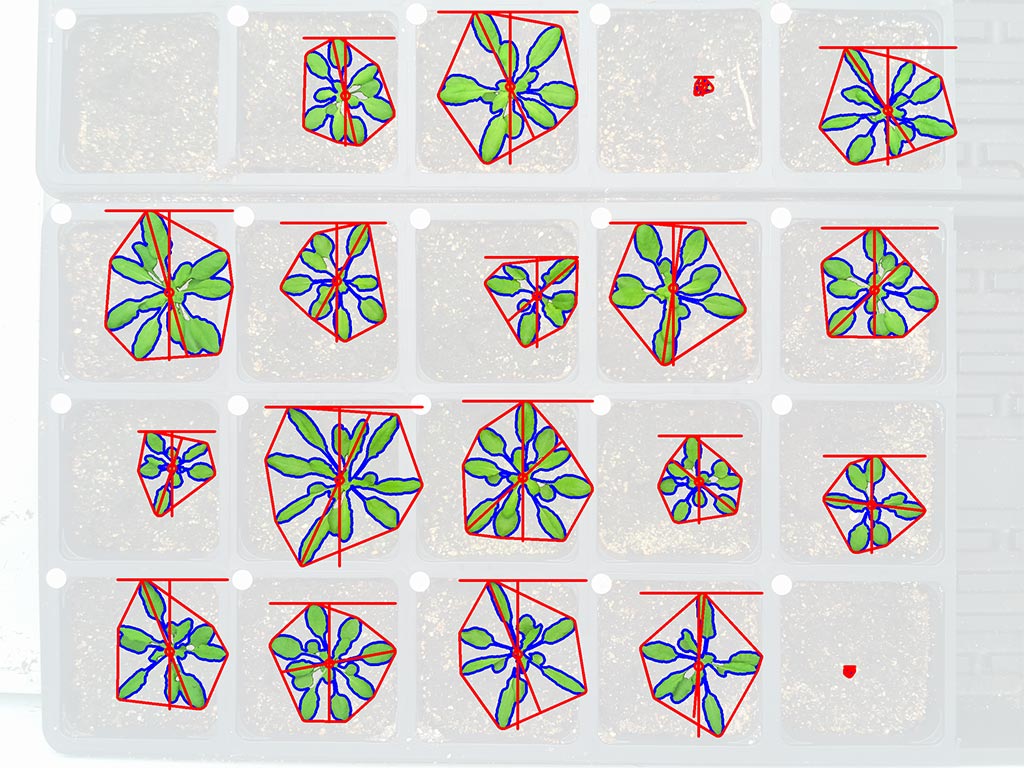
The Transposable Elements and Thermotolerance Course-Based Undergraduate Research Experience
Changing climate conditions, such as increased temperatures, threaten current crop production and food safety. Scientists are, therefore, interested in discovering new genes that could help plants tolerate heat and survive (known as thermotolerance) and engineering these genes into different crops. Dr. Keith Slotkin, a Principal Investigator at the Donald Danforth Plant Science Center, and members of his research team have developed a technology to add DNA to plant genomes in the form of new transposable elements. This technology could greatly improve the way scientists introduce novel characteristics and traits, such as thermotolerance, in agriculturally important plants. The Slotkin lab has engineered a transposable element to carry heat-shock enhancer elements (called mPing-HSE). This element jumps / “transposes” to different regions in the genome with a likelihood of activating nearby genes in response to heat stress.
This 2-to-3-week Course-Based Undergraduate Research Experience (CURE) allows students to be part of this groundbreaking research through their participation in planting and screening for thermo-tolerant Arabidopsis thaliana plants that have mPing-HSE in different genomic positions. In collaborative teams, students will pose scientific questions and examine which plants can survive a high-heat treatment using the scientific method and controls. The individual heat-resistant plants identified by this CURE will be analyzed by the Slotkin lab to identify the mPing-HSE locations and genes that were activated and responsible for overcoming the heat stress. Additionally, participant undergraduate students will have an opportunity to engage in scientific discourse with the lead scientist Dr. Keith Slotkin.
This CURE is not accepting participants at this time.
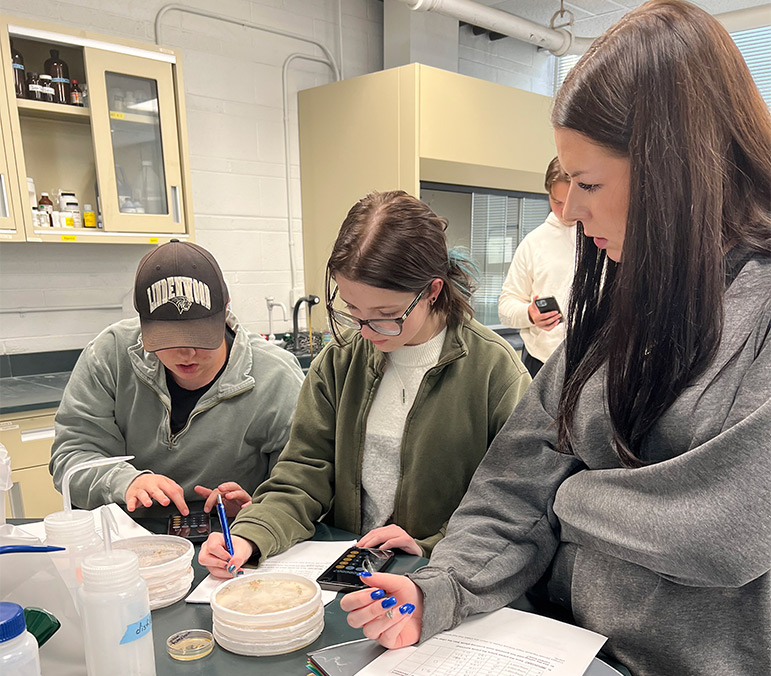
Please see the Slotkin lab’s publication in Nature to learn about the research that inspired this CURE.
Liu, P., Panda, K., Edwards, S. A., Swanson, R., Yi, H., Pandesha, P., Hung, Y.-H., Klaas, G., Ye, X., Collins, M. V., Renken, K. N., Gilbertson, L. A., Veena, V., Hancock, C. N., & Slotkin, R. K. (2024). Transposase-assisted target-site integration for efficient plant genome engineering. Nature, 631(8021),
593–600. https://doi.org/10.1038/s41586-024-07613-8
A Brighter Tomorrow
Through our authentic research experiences and course-based undergraduate research experiences, the Danforth Center is dedicated to supporting future and early-career scientists and believes in the power of education and outreach to create a better future for all. If you would like to support the next generation of scientists, click here to make a donation today.
Questions? Contact Us
